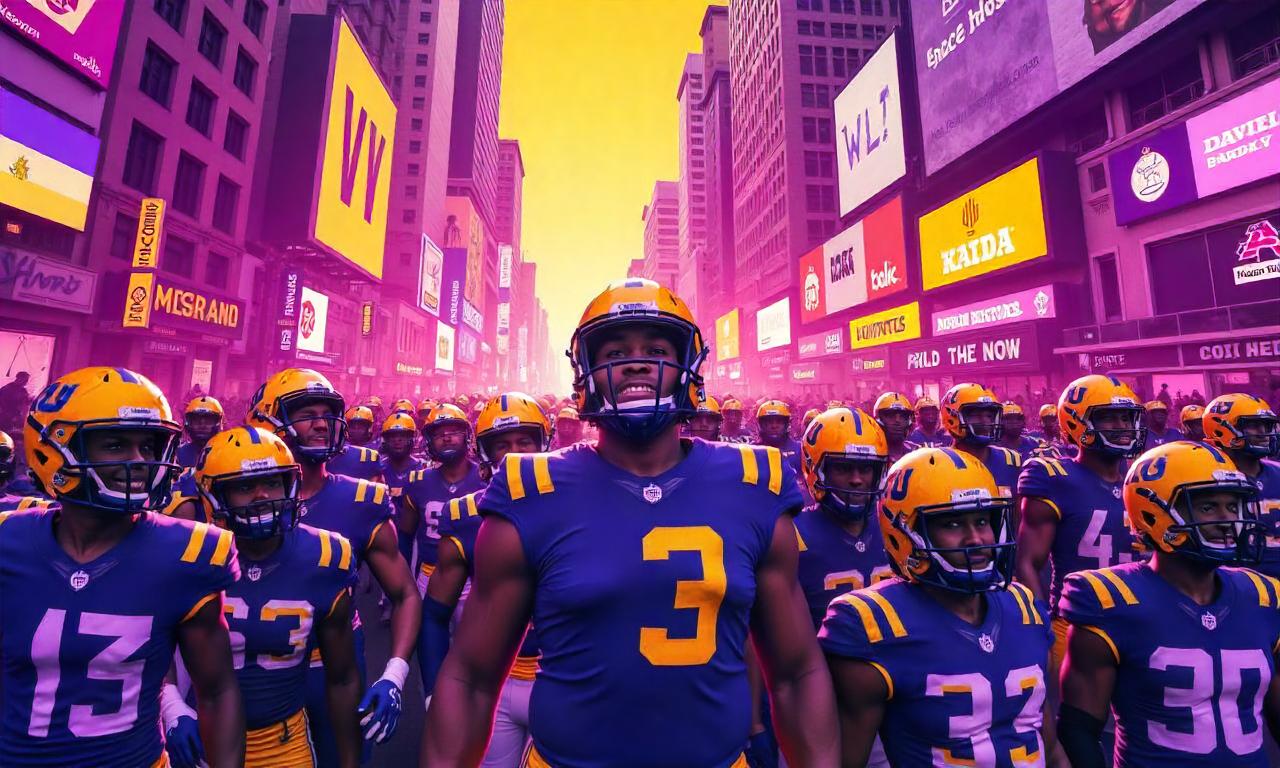No Kings Protests, LSU vs Vanderbilt, and Washington vs Michigan: A Convergence of Activism, Sports, and National Significance On a pivotal day in October 2025, the nation witnessed three significant events that captured public attention—No Kings protests against President Donald Trump, the LSU vs Vanderbilt showdown in the SEC, and the Washington vs Michigan clash in the NCAA. These events, though seemingly unrelated, reflected the diverse dynamics of contemporary society, from political dissent to college football’s high-stakes competition. The No Kings movement, rooted in grassroots activism, highlighted growing concerns over authoritarianism and corruption, while the LSU vs Vanderbilt game symbolized the intensity of SEC rivalries. Meanwhile, the Washington vs Michigan matchup underscored the importance of college football in shaping national narratives. Each event contributed to a broader conversation about power, progress, and the role of institutions in American life. — 1. The No Kings Movement: A Challenge to Authoritarian Leadership The No Kings protests emerged as a powerful response to the perceived concentration of power under the Trump administration, with Lynchburg, Virginia, serving as a key location in the 2025 wave of demonstrations. Organized by groups like Indivisible Lynchburg, these rallies aimed to challenge authoritarian policies and call for democratic accountability. The movement gained traction through its decentralized yet coordinated strategy, uniting citizens across the country under a shared goal of limiting executive overreach. 1.1. Origins of the No Kings Movement The No Kings movement first gained momentum in 2024, inspired by a growing discontent with presidential overreach and centralized decision-making. Protesters argued that policies such as travel bans, border control measures, and censorship initiatives threatened the principles of democratic governance. The 2025 iteration of the movement, No Kings 2.0, expanded its reach, incorporating themes of corruption, media manipulation, and economic inequality. This evolution demonstrated how the movement adapted to address new challenges while maintaining its core message of accountability. 1.2. Key Aspects of the Movement The No Kings protests were not limited to political rhetoric; they also emphasized grassroots engagement and local impact. In Lynchburg, the event at Miller Park became a focal point for community members seeking to mobilize public opinion against the administration. Protesters used social media campaigns, public speaking forums, and community outreach to amplify their message. The Indivisible Lynchburg group, in particular, played a central role in coordinating local efforts and national solidarity. This strategic use of platforms helped the movement reach a wider audience, ensuring its relevance in the 2025 political landscape. 1.3. The Role of Media in Amplifying the Movement Media coverage of the No Kings protests played a critical role in shaping public perception. News outlets like WSET and CNN Politics highlighted the societal implications of the movement, framing it as a symbol of resistance in an era of increasing polarization. The use of live updates and in-depth analysis ensured that the protests remained visually engaging and informationally rich. This media strategy helped the movement gain national recognition, even as it continued to focus on local issues. The combination of grassroots activism and media influence created a powerful synergy that underscored the importance of public discourse in shaping political outcomes. — 2. LSU vs Vanderbilt: A High-Stakes SEC Showdown The LSU vs Vanderbilt game on October 18, 2025, marked a critical moment in the SEC season, with both teams vying for playoff relevance. This rematch, following a 2024 encounter where LSU emerged victorious, promised to be intensely competitive, given the historical rivalry and the current standings of both programs. The game's significance extended beyond the field, as it reflected broader narratives of team resurgence, player development, and conference competitiveness. 2.1. Teams and Current Standings As of October 2025, LSU entered the game with a 5-1 record and 2-1 in SEC play, showcasing their impressive offense and tough defense. Meanwhile, Vanderbilt aimed to capitalize on momentum, having improved their record to 5-1, 1-1 in the SEC. The Vanderbilt quarterback Diego Pavia was expected to play a pivotal role, having rebuilt confidence after a recent loss to Alabama. His performance would be crucial in determining the outcome of this key matchup. 2.2. Historical Context and Rivalry The LSU vs Vanderbilt rivalry has deep roots, with both teams historically competitive in the SEC East Division. Their 2024 game, which ended in a 24-17 LSU victory, set the stage for a highly anticipated rematch. Analysts noted that LSU's offense had faced challenges, scoring fewer than 23 points against FBS opponents this season. Conversely, Vanderbilt's defense had shown improvement, making them strong contenders for a playoff berth. The game's stakes were heightened by its potential impact on conference standings. 2.3. Game Strategy and Tactical Analysis Both teams approached the game with distinct strategies. LSU focused on ball control and precision passing, while Vanderbilt emphasized defensive pressure and fast-paced offense. The performance of key players would be the deciding factor, particularly Diego Pavia and LSU's defensive line. Analysts predicted that the outcome would hinge on LSU's ability to execute under pressure and Vanderbilt's resilience in high-intensity moments. The game's significance also extended to national rankings, as a win for either team could solidify their playoff hopes. — 3. Washington vs Michigan: A Clash of College Football Powerhouses The Washington vs Michigan game, scheduled for early October 2025, represented a key matchup in the NCAA landscape. With both teams maintaining strong records, the clash was anticipated as a test of strength and tactical prowess. This high-profile game highlighted the importance of college football in shaping national narratives and institutional identity. 3.1. Teams and Performance Metrics Washington and Michigan entered the 2025 season with consistent performances, making their meeting a critical event. Washington’s offensive line and quarterback play were expected to dominate, while Michigan’s defensive strategies and special teams posed a challenge. The game's outcome could influence conference standings and national rankings, adding pressure on both teams to perform at their best. 3.2. Strategic Implications and Game Plan Both teams had unique strategies tailored to their strengths and weaknesses. Washington aimed to leverage their passing game and explore new





